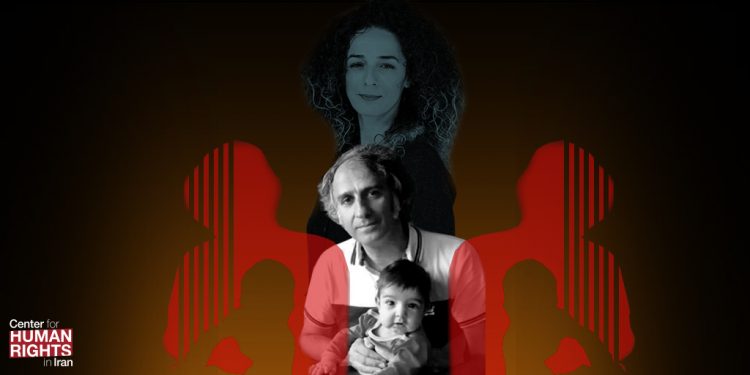Masih Alinejad: My Brother is Facing Prison Time for Being Related to Me
 The brother of activist Masih Alinejad is being prosecuted in Tehran to “pressure” her to end her campaign against the compulsory hijab, she said in a press release calling for his release.
The brother of activist Masih Alinejad is being prosecuted in Tehran to “pressure” her to end her campaign against the compulsory hijab, she said in a press release calling for his release.
A “portion” of Alireza Alinejad’s first court hearing for unspecified charges was focused on his sister’s activities, according to a private Instagram post by his lawyer, Saeed Dehghan.
“My brother’s only crime is that he’s related to me,” said Masih in her press release dated April 23, 2020. “He is subjected to this cruel punishment just to keep me silent.”
Alireza has been detained for seven months, according to the press release, which noted that presiding Judge Mohammad Moghiseh refused to clarify the “exact charges” against Alireza and refused to grant him parole. The remainder of his trial has been postponed to June 22.
Judge Moghiseh has a documented history of sentencing peaceful detainees including journalists and activists to lengthy prison terms on trumped-up charges brought by members of the country’s intelligence establishment or hardline officials.
Most recently, detained teenage Instagram celebrity Fatemeh Khishvand was put on a ventilator after coming down with COVID-19 following Judge Moghiseh’s refusal to release her on bail, according to her lawyer.
Alireza has been detained since September 2019 after being arrested by agents of the Islamic Revolutionary Guard Corps (IRGC). He is currently in Ward 2A of Tehran’s Evin Prison, which holds political prisoners and is controlled by the IRGC.
Based in Brooklyn, New York, Masih worked as a journalist in Tehran and is the founder of the anti-compulsory-hijab “My Stealthy Freedom” online campaign. She is currently a TV host for the Persian-language Tablet Show on Voice of America.
In July 2018, Masih wrote in a New York Times op-ed that Iranian authorities had pressured her family to denounce her to state-run media outlets, including in a state TV program that featured her sister publicly condemning Alinejad for her advocacy against Iran’s forced hijab law.
Iran’s intelligence establishment has a documented history of harassing and detaining activists’ and journalists’ family members as part of a long-established practice aimed at controlling Iranian citizens based abroad.
Security agencies have also imprisoned and harassed family members of journalists based in foreign countries. In October 2017, the BBC urged the UN to investigate Iran’s freezing of the assets of 152 BBC Persian staff, current and former, in Iran and abroad.
The BBC said family members of its Persian-language service have been arbitrarily arrested and some elderly members interrogated. Staff members have also been the subjects of smear campaigns and their personal online accounts have been hacked.





